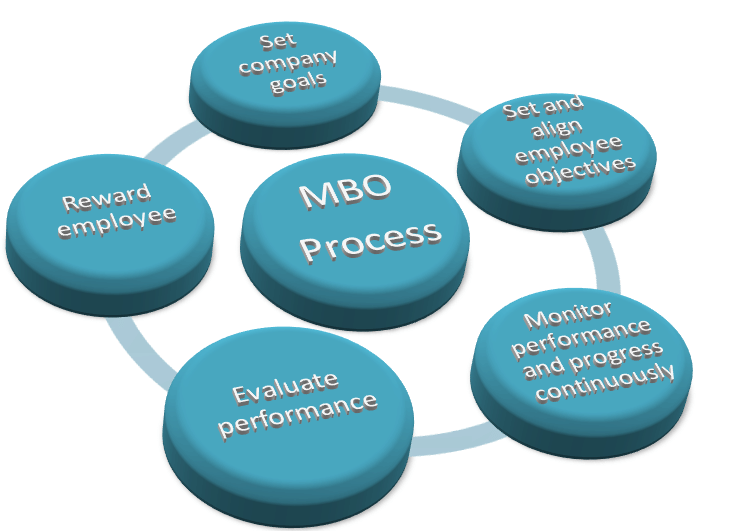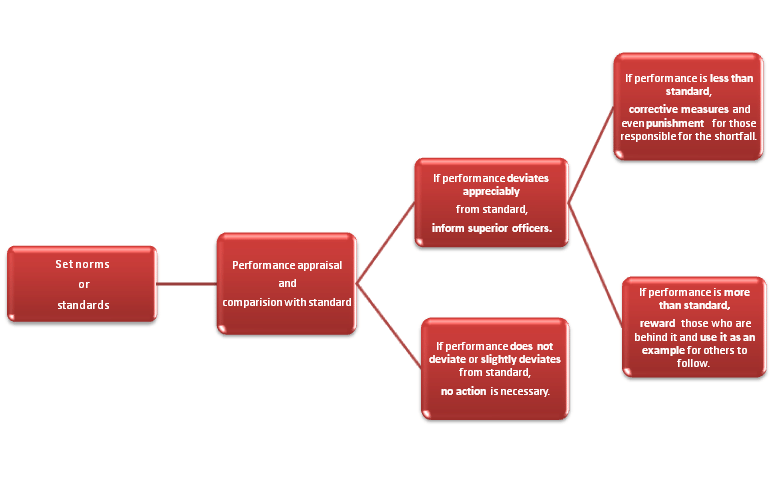Difference Between MBO and MBE - B Com PDF Download
Ref: https://edurev.in/question/674279/management-by-exception-and-difference-between-MBO-and-MBE-Related-Management-by-Exception-Introduct
Difference Between MBO and MBE
The difference between management by objectives (MBO) and management by exception (MBE) can be found in the management principles and practice. Different management authors have proposed different models of management which suit different leadership styles and motivation ideologies. Management by objectives and management by exception are significant models out of such models. Both have their own advantages and disadvantages. Now, we will focus on each model and will reflect on its differences thereafter.
What is Management by Objectives (MBO)?
MBO was first proposed by Peter Drucker in his book of Practice of Management in 1954. Management by objective can be defined as “a management model that attempts to devise a common objective that is acceptable for both the management and employees, which will improve the overall performance of the organisation. The important aspect of MBO is that participative goal setting with a strategic plan which ensures the objectives have an alignment throughout the organisation. This aids in better participation and commitment among employees. Further, employees understand their roles and responsibilities due to the participative goal setting. So, employee performance can be measured with the standards set without grievances.
The goals can be set for a department such as marketing, finance, human resources, etc. or for the whole organisation. In MBO, the objectives need quantifying and monitoring. This task is usually carried out by powerful management information systems. Appraisal is linked with the system to identify objective achievement levels.
The benefits of MBO are:
- Motivation – Due to the participative goal setting employees are better empowered. This raises the job satisfaction and commitment.
- Clarity of objectives – Due to the participative goal setting, the goals are better understood across the organisation.
- Better communication – Reviews and constant interactions with managers and employees aids in a better relationship between them and helps coordination.
- Drive to achieve – As goals are set by them for them, they will have more urge to achieve the objectives.
- Objectives can be set at all levels and for all functions.
MBO has its disadvantages too. The product quality can be adversely affected as employees will try to achieve the production targets ignoring the product quality. In addition, the process may be time-consuming and hard to implement. Another disadvantage is that innovation is not encouraged, and this can create a non-adaptive organization.
What is Management by Exception (MBE)?
In most organizations, a set of objectives and the action plan would have been communicated to relevant stakeholders such as the owners, senior managers, junior managers and employees. The action plan will be the norm or standards for the organization. Management by exception is a management style which identifies the practical deviations from the standards or the best practice. If the actual performance does not show a significant deviation, no action needs to be taken. This lets the senior management concentrate on more important work. If the deviation is significant, the issue is reported to senior management for evaluation and rectification. On an event of a significant deviation, senior management is alerted, this is referred to as “exception has occurred” and solve the “exception” urgently.
The accounting department plays a pivotal role in MBE. They need to devise a practical forecasted budget which is not understated or overstated to their best ability. On revelation of results, a variance study between the budget and actual is carried out by accounting operations. Results of variance analysis are reported on an event of significant deviation.
The key benefit of MBE is managers do not have to overlook all monitoring procedures. They can concentrate on their core responsibilities and can only respond to important deviations. This saves precious time and energy of the management which benefits the overall organization in carrying out their business. Delays in daily operations will not be hindered frequently. Also, problematic issues can be identified more rapidly. Further, as employees are given a task and less supervised, they are indirectly motivated by a self-driven approach to attaining the given goals / tasks.
MBE has its disadvantages too:
- Mistakes in calculations the budgets can lead to higher variances and finding the root causes can be a time-consuming task.
- Dependency on accounting department is too high, and the probability of accurate forecasting is questionable.
- Important decisions will be with senior management and participation of employees is less. This can be demotivating factor.

What is the difference between Management by Objectives (MBO) and Management by Exception (MBE)?
Definition of Management by Objectives (MBO) and Management by Exception (MBE)
Management by objectives: Management by objectives can be defined as a management model that attempts to devise a common objective that is acceptable for both the management and employees, which will improve the overall performance of the organization.
Management by exception: Management by exception can be defined as a management mode that provides the objectives for employees and only concentrate on significant deviations from the set objectives or task which will reduce the energy and time lost on unnecessary monitoring and evaluation procedures.
Characteristics of Management by Objectives (MBO) and Management by Exception (MBE)
Employee Participation
Management by objectives: Employee participation is essential for an MBO model as it needs a common objective acceptable for management and employees.
Management by exception: Employee participation in objective setting and decision making is minimal in an MBE model as that responsibility is rested with senior management.
Role Ambiguity
Management by objectives: In MBO, the clarity of personal responsibility towards organizational goals is better communicated and understood by the employee.
Management by exception: In MBE, the clarity will be lacking, and employees will perform a generic responsibility without understanding his role in the overall objective achievement.
Dependency
Management by objectives: In MBO, the dependency on one department or group is less as operations are handled with organizational wide participations.
Management by exception: In MBE, the dependency on one department especially of financial analysis / account is high as they are responsible for forecasting, budgeting and monitoring. Further, they are responsible for communicating significant deviations.
Efficiency
Management by objectives: In MBO, the active involvement of whole organization in decision making can lead to delays and complex procedures which can reduce efficiency.
Management by exception: In MBE, as only a certain group makes important decisions and investigations are performed only in instances of significant deviation the time devoted to daily work is more which can result in better efficiency.
FAQs on Difference Between MBO and MBE - B Com
| 1. What is the difference between MBO and MBE in B Com? |  |
| 2. How does MBO work in B Com? |  |
| 3. What are the benefits of implementing MBE in B Com? |  |
| 4. Can MBO and MBE be used together in B Com? |  |
| 5. How can MBO and MBE improve organizational performance in B Com? |  |




















